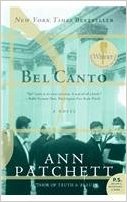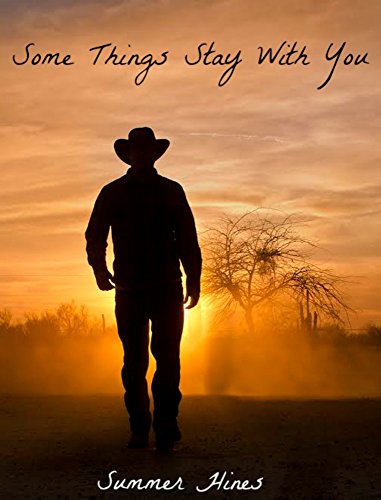Some Things Stay With You received a 4+ star review, making it an IndieReader Approved title.
Following find an interview with author Summer Hines.
Some Things Stay With You: A Windswept Wyoming Romance, published April 2017.
What’s the book’s first line?
“Cash Bingham eased the sheriff’s jeep onto the highway’s grassy shoulder, fifty feet from where two cars nosed into one another, both askew and slightly smoking.”
What’s the book about? Give us the “pitch”.
It’s been eight years since Harper Bennett left her rural hometown of Avon, Wyoming for New York City. Eight years since she saw her best friend, Cash Bingham. Now Harper finds herself back in Avon, and on the wrong side of Sheriff Cash Bingham, and the circumstances are more complicated than either of them could have bargained for. They find it easy to fall back into old patterns of friendship, and even something beyond. But will those complications—a shadowy drug operation, a new boyfriend, a deadbeat dad, ill-kept secrets, and years of distance—undermine the feelings of these friends-turned-strangers-turned-more than friends? This New Adult Romance captures the loneliness of the windswept West and the comfort of arms grown familiar again.
What inspired you to write the book? A particular person? An event?
An event. Well, two events. Picture this: Disneyland, mid-80s. I’m about four, and I’m there for the first time with my family. We’re walking around when suddenly, there it is: Sleeping Beauty’s Castle. The symbol of fairytale fantasy. I approach its drawbridge, its lofty towers. I step closer. And there I stand, probably holding a half-eaten churro, thinking only one thing: what kind of nonsense malarkey do they think they’re pulling here? What do they think I am, some kind of rube? I may be four years old, but I know for certain that a real castle is made up of more than a single spiral staircase and a gift shop. And, thus began a life of impatience with simulacra and simulation.
Fast forward about thirty years, and I’m walking around Seattle (probs with a half-eaten churro, because some things never change), and I stumble upon a book someone has left in one of those mini-libraries. It’s the cowboy romance equivalent of Sleeping Beauty’s Castle: it has the elements, but it lacks the beating heart I want it to have. And, I just wondered if I could write something better. I didn’t want to change the formula, because I like the romance novel formula and I think there’s power in its structure. But, I wondered if I could make the elements feel like more than a spiral staircase and a gift shop. In other writing I’ve done, I’d try to think my way around cliché, but, with Some Things Stay With You, I leaned into them, working—not to avoid them—but to make them feel real.
What’s the main reason someone should really read this book?
I hope for the same reasons I wrote it: because its hero and heroine are people you can really invest in. Cash and Harper are more than tropes, they’re funny and hopeful and flawed and frustrating and self-sabotaging and engaging and you just want things to work for them.
What’s the most distinctive thing about the main character? Who-real or fictional-would you say the character reminds you of?
My book is written with dual perspectives, so I’ll start with Harper. Her most distinctive quality is the push and pull of who she is. She’s country girl who always felt a little out of place growing up in rural Avon, WY, but, after eight years in New York City, she’s not so sure that she belongs there, either. Her journey is about realizing that who she is isn’t a binary choice.
Cash is propelled by duty, but sometimes he uses “duty” as an excuse for not making himself vulnerable. He let Harper leave eight years ago without telling her how he felt. Now that she’s back, the question is whether he can break out of old patterns.
When did you first decide to become an author?
I don’t know that anyone decides to be an author. The desire to live different lives through reading becomes the desire to create different lives through writing. That’s how it was for me.
Is this the first you’ve written?
It’s not the first thing I’ve written, but it’s the first thing I’ve ever published. I liked it so much I’m writing another.
What do you do for work when you’re not writing?
I have a small son and I’m lucky enough to spend my time working for him. He’s very exacting and NEVER gives positive feedback in performance reviews.
How much time do you generally spend on your writing?
Nightly. A few hours, sometimes more, sometimes less, depending on how much I’m willing to hate myself in the morning.
What’s the best and the hardest part of being an indie?
The best part is full creative control. The hardest part is also full creative control.
What’s a great piece of advice that you can share with fellow indie authors?
Like what you write. If you like what you’ve written, it won’t matter how much anyone else does, or how effusively they respond. There is peace in knowing that you will always enjoy what you’ve created. (Full disclosure: this is also my advice on bringing snacks to parties)
Is there something in particular that motivates you?
I get an idea in my head, or a character, or a moment, and I start writing. I create these characters, and, at the beginning, I barely know them. I write because I want to know them better. Not everything I write works, because, you know, I’m not a magician, so I always know I’m on the right track when I truly want to know the person I’m writing better. I create situations and, then, I just see how they react in them. Sometimes I have an idea of what they’ll do, but, other times, it’s a surprise. It’s the most fun I’ve ever had.
Which writer, living or dead, do you most admire?

Which book do you wish you could have written?
Bel Canto, by Anne Patchett, hands down. I’ve never read a book so beautifully crafted and so masterfully paced.

